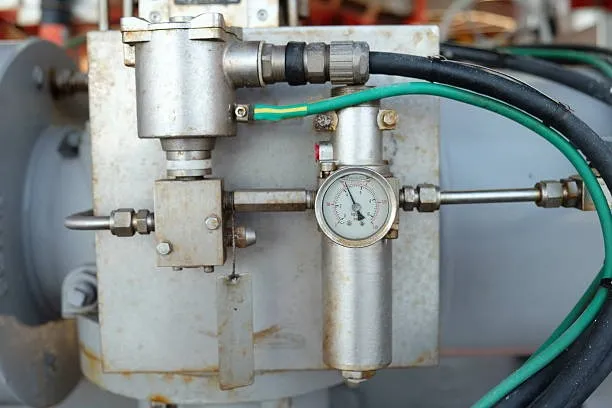
Boiler Installation in Wheatland, PA
Replacing or installing a new boiler is one of the most impactful upgrades you can make to your Wheatland, PA home. With cold, long winters in Mercer County and many older, hydronic-heated houses in the area, a properly sized, code-compliant boiler delivers safer, more consistent warmth, improved energy efficiency, and lower operating costs.
Why a proper boiler installation matters in Wheatland, PA
Wheatland sees subfreezing temperatures for extended periods, which magnifies the consequences of undersized or poorly installed systems. Many local homes still use aging cast-iron boilers, antiquated controls, or undersized venting. A modern installation done to code:
- Reduces risk of carbon monoxide and fuel leaks
- Improves heating comfort and hot water delivery
- Lowers fuel consumption and monthly bills
- Extends equipment life and protects manufacturer warranties
Common boiler replacement drivers and local issues
Homeowners in Wheatland typically seek new boiler installations for these reasons:
- End of life for cast-iron or steel boilers (frequent leaks, rust, or cracks)
- Repeated breakdowns and high repair frequency
- Desire to switch to high-efficiency condensing boilers (natural gas, propane)
- Home renovation or conversion to hydronic radiant heating or multiple zones
- Inadequate venting or unsafe chimney conditionsLocal challenges often include outdated chimney liners, undersized gas piping, inadequate combustion air, corroded near-boiler piping, and suboptimal system controls — all of which must be addressed during installation.
Pre-installation assessment: what we evaluate
A thorough pre-installation assessment prevents common problems and ensures the new boiler matches your home’s needs:
- Detailed heat loss/heat load calculation to determine correct boiler size (not just equipment BTU ratings)
- Fuel availability review (natural gas, propane, oil) and assessment of existing supply lines
- Inspection of venting and chimney condition, combustion air sources, and roof/chimney clearances
- Evaluation of hydronic distribution: radiators, baseboards, in-floor tubing, circulators, and zone valves
- Electrical supply and control wiring needs, condensate drain routing for condensing units, and available space or clearances required by code
Site preparation and code compliance
Proper site prep protects safety and performance. Typical tasks include:
- Obtaining required local permits and coordinating inspections per Mercer County and Pennsylvania codes
- Preparing a stable, code-compliant equipment pad or platform and ensuring proper clearances
- Installing or repairing chimney liners, flue piping, or direct-vent terminations appropriate to the boiler type
- Ensuring combustion air availability, mechanical ventilation if required, and secure gas shutoff locations
- Addressing condensate neutralization and disposal where condensing boilers are installed
Venting and piping work
Venting and piping are critical to efficient, safe operation:
- Correct flue materials and routing for positive venting and to meet draft/pressure requirements
- Proper gas line sizing and pressure testing for safe fuel delivery
- New or upgraded near-boiler piping including expansion tank, backflow or pressure relief valve, air separator, and properly placed isolation valves
- Insulation of supply and return piping to minimize heat loss, especially in unconditioned basements or crawlspaces
- Integration with existing hydronic components or installation of new circulators and zoning controls
Professional installation procedures
A professional installation follows established best practices:
- Removal and safe disposal of the old boiler and any hazardous components
- Precision placement and secure mounting of the new boiler with manufacturer clearances
- Accurate piping connections, brazing/welding as required, and leak testing of the hydronic and fuel systems
- Electrical hookup to meet code, installation of control systems and smart thermostats, and setup of zoning
- Installation of safety devices: pressure relief valves, low-water cutoffs (if applicable), and proper venting terminations
Post-installation testing and commissioning
Commissioning verifies safe, efficient operation and should include:
- System fill, purge, and pressure testing to remove air and check for leaks
- Combustion analysis to confirm proper fuel-to-air ratio and safe flue gas levels
- Draft and venting tests to ensure exhaust is moving correctly and no backdrafting occurs
- Balancing hydronic loops and programming zone controls and thermostats for comfort and efficiency
- Running the system through a full cycle to validate temperature rise, pump operation, and safety shutoffs
Warranty registration and documentation
Registering your new boiler with the manufacturer protects warranty coverage and helps preserve resale value. Typical steps include:
- Documenting model and serial numbers, installation date, and burner settings
- Recording combustion readings and commissioning checks
- Providing the homeowner with written warranty terms (parts and, if applicable, labor), recommended service schedule, and any registration confirmation numbers
Homeowner orientation: operating and maintaining your boiler
A good installer leaves homeowners confident in their system’s operation. Orientation should cover:
- How to read and interpret the pressure gauge and temperature settings
- Normal sounds and startup behavior versus signs of trouble (strange noises, steady pressure loss, visible leaks)
- How zone controls and thermostats work and how to adjust schedules for efficiency
- Basic maintenance tasks: annual tune-up, bleeding radiators or purging zones, checking expansion tank pressure, and inspecting visible piping
- Safety protocols: location of gas shutoff, importance of carbon monoxide detectors, and when to call a qualified technician
Long-term benefits and maintenance advice
Proper installation plus regular maintenance maximize your boiler’s benefits:
- Improved comfort and even heat distribution throughout the heating season
- Lower fuel bills and reduced environmental impact from higher combustion efficiency
- Fewer emergency repairs and extended equipment life
- Cleaner indoor air with fewer combustion byproducts entering living spacesAnnual inspection and preventive maintenance are especially important in Wheatland’s harsh winters to prevent freeze damage, maintain efficiency, and ensure safe operation.
A professional, code-compliant boiler installation in Wheatland, PA addresses local climate demands, older-home considerations, and modern efficiency standards. With careful assessment, correct venting and piping, thorough commissioning, and clear homeowner orientation, your new boiler can deliver safe, reliable heat for years to come.


Enjoy flexible financing options that make upgrading or repairing your HVAC system easy and budget-friendly.










